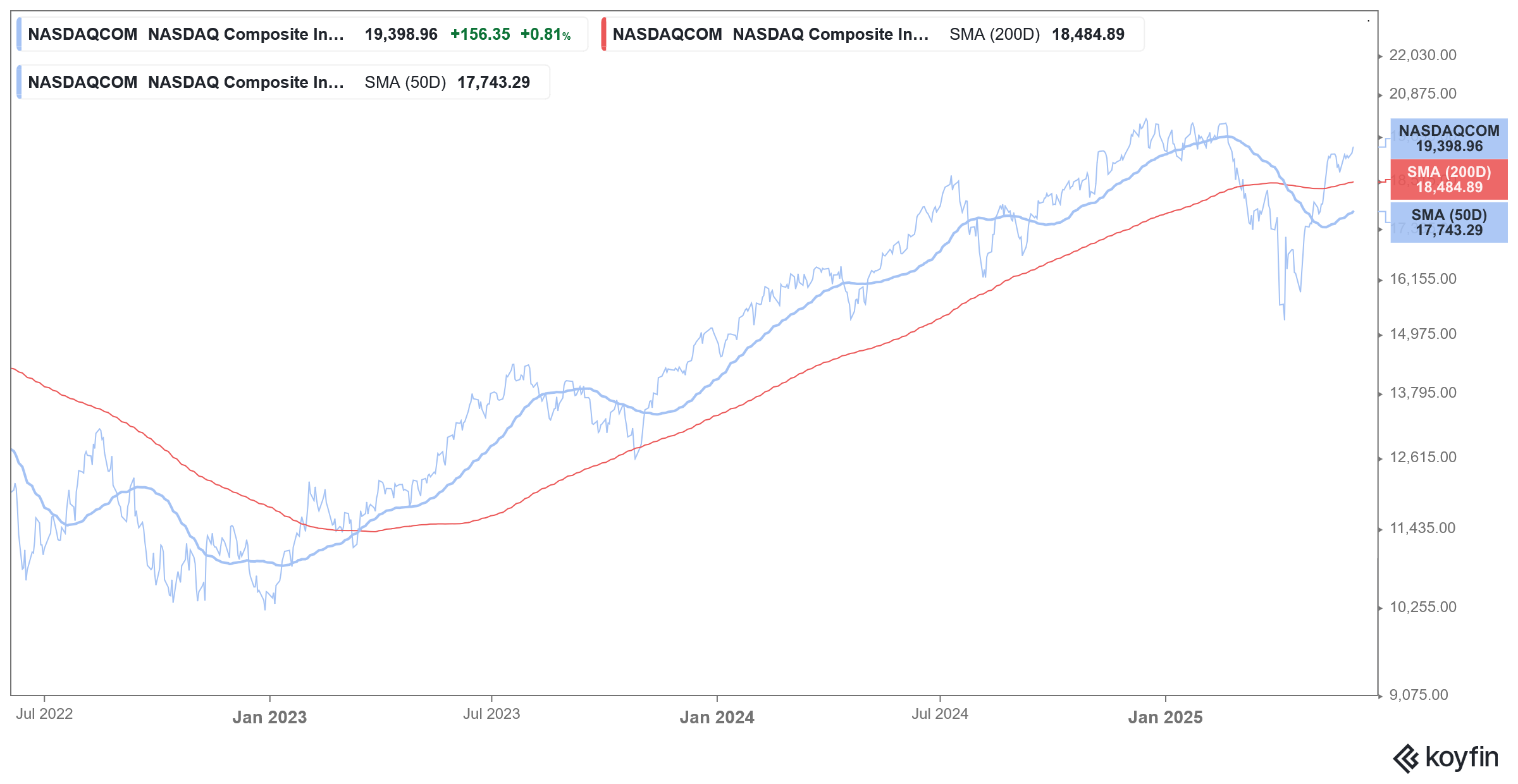US Stocks Rise as Donald Trump Confirms His Call with Xi Jinping
Please note that we are not authorised to provide any investment advice. The content on this page is for information purposes only.
US stock futures rose today on reports of a call between US President Donald Trump and Chinese President Xi Jinping. While stocks pared gains as investors awaited more details on their conversation, markets are back in the green after Trump confirmed the call.
In its statement, China’s Ministry of Foreign Affairs said that the call was initiated by Trump. The call is the second between the leaders of the world’s two biggest economies, as the two had spoken a couple of days ahead of Trump’s inauguration.
Table of Contents
Trump-Xi Hold Phone Call
The call was first announced by Fu Cong, China’s ambassador to the United Nations. Trump later confirmed the call in a Truth Social Post and said, “I just concluded a very good phone call with President Xi, of China, discussing some of the intricacies of our recently made, and agreed to, Trade Deal.”
He added, “The call lasted approximately one and a half hours, and resulted in a very positive conclusion for both Countries. There should no longer be any questions respecting the complexity of Rare Earth products. Our respective teams will be meeting shortly at a location to be determined.”
Trump clarified that the call was entirely focused on “trade” and other issues like the Iran or Russia/Ukraine conflict were not discussed. The President said that representatives of both countries would soon meet at a location that’s yet to be determined.
Meanwhile, the call came amid reports of stalled trade talks between the US and China.
Trump Imposed Massive Tariffs on China
Trump vowed to bridge the country’s burgeoning trade deficits with his tariffs, and days into his presidency, he signed an executive order imposing blanket tariffs of 25% on most imports from Canada and Mexico, and a 10% tariff on Canadian energy products, citing border security and drug trafficking concerns. He also announced 10% tariffs on goods from China for the country’s alleged role in the US fentanyl crisis, which he later raised to 20%
Subsequently, he announced 25% tariffs on US steel and aluminum imports (which have since been raised to 50%), that were even higher than his previous tenure when he had imposed a 25% tariff on steel and a 10% tariff on aluminum imports. He also imposed a 25% tariff on imports of cars and car parts.
On April 2, Trump announced reciprocal tariffs on nearly all countries. However, he later lowered the tariffs to 10% on all countries, barring China. At one point, imports from China attracted a tariff of as high as 145% amid the escalating trade war between the two countries. However, after a meeting between the two sides in Geneva, Trump lowered the reciprocal tariff on China to 10%. China is still subject to the 20% fentanyl-related duties, so imports from that country are subject to a 30% tariff in total.
US-China Talks Were ‘A Bit Stalled”
The trade truce between the world’s two biggest economies came in as a big relief to markets, and stocks soared following that agreement that was to be in place for 90 days, giving the two sides the time to negotiate a trade deal.
Meanwhile, over the last week, signs started emerging that the US-China truce was not holding off well. Speaking with Fox News, Treasury Secretary Scott Bessent said that U.S.-China trade talks “are a bit stalled” and would require intervention from top leaders of both countries.
“I think that given the magnitude of the talks, given the complexity, that this is going to require both leaders to weigh in with each other,” said Bessent. He added, “They have a very good relationship and I am confident that the Chinese will come to the table when President Trump makes his [preferences] known.”
Trump Accused China of Violating the Agreement
Earlier this week, Trump accused China of violating the agreement. “I like President XI of China, always have, and always will, but he is VERY TOUGH, AND EXTREMELY HARD TO MAKE A DEAL WITH!!!,” he wrote on Truth Social.
China, on the other hand, accused the US of violating the trade agreement the trade agreement through “export control guidelines for AI chips, stopping the sale of chip design software to China, and announcing the revocation” of visas for Chinese students.
The Chinese spokesperson warned, “If the U.S. insists on its own way and continues to damage China’s interests, China will continue to take resolute and forceful measures to safeguard its legitimate rights and interests.”
Trump Had Been Waiting for a Call from Xi
Multiple reports suggested that Trump was getting somewhat “desperate” for a call with Xi. The US president went soft on tariffs after having previously raised them to humongous levels.
Financial Times columnist Robert Armstrong coined the acronym TACO (Trump Always Chickens Out) to encapsulate a perceived pattern in Trump’s approach to international trade, which has become a significant factor in market volatility.
It has been a regular pattern where Trump announces aggressive tariffs or sweeping trade policies, often sparking widespread concern and uncertainty across global markets, leading to a crash in risk assets, especially stocks.
After a period of market unrest and political pushback, Trump has then backed down, delayed, or significantly softened his initial tariff proposals, often citing ongoing negotiations or concessions from trading partners.
The “TACO trade” has been pretty profitable for those buying the dips in stocks after Trump announced sweeping tariffs, as the President has rolled back most tariffs, leading to a sharp recovery in US stocks.






